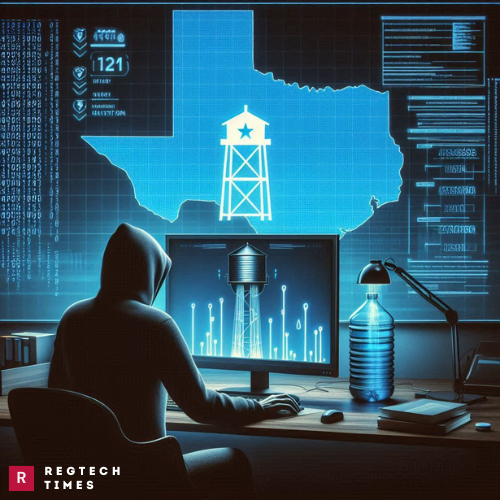The U.S. government recently took a strong action against two Russian hackers who were involved in cyberattacks on public water systems in Texas. These hackers, Yuliya Vladimirovna Pankratova and Denis Olegovich Degtyarenko, are leaders of a hacker group called Cyber Army of Russia Reborn (CARR). The U.S. Treasury Department has now added them to a list of people who are banned from doing business with Americans due to their involvement in dangerous cyberattacks. These attacks caused significant problems for the water systems in small Texas towns such as Muleshoe and Abernathy.
What Happened in Muleshoe and Abernathy
In early January 2024, the towns of Muleshoe and Abernathy in Texas became targets of a cyberattack. The hackers gained access to the water systems that control the flow and storage of water in these towns. This system is crucial for ensuring that the towns have a steady and clean water supply. The hackers manipulated the system, which led to water tanks overflowing and spilling tens of thousands of gallons of water.
In Muleshoe, the water tower overflowed for 30 to 45 minutes. The hackers were able to remotely take control of the industrial system used by city workers to manage the tank. It was only after the utility operators manually took control of the system that they were able to stop the overflow. Thankfully, no one was hurt, but the incident showed how dangerous it could have been if the situation had gotten worse.
The attacks didn’t stop there. In other nearby towns like Lockney and Hale Center, city officials noticed suspicious activity that seemed connected to the Muleshoe and Abernathy attacks. In these towns, hackers also tried to break into the water utilities’ SCADA system. This system helps operators monitor and control vital water infrastructure from a distance. If the hackers had succeeded, they could have caused even more damage to the water systems, putting the safety and health of local residents at risk.
The Hackers and Their Methods
The hacker group responsible for these attacks, Cyber Army of Russia Reborn (CARR), has a history of causing trouble online. The U.S. Treasury Department says that CARR is a “hacktivist” group, meaning they carry out cyberattacks to make political statements or cause disruption. In addition to the attacks on Texas water systems, CARR has been involved in other cyberattacks against countries that have supported Ukraine. These include smaller-scale attacks like Distributed Denial-of-Service (DDoS) attacks, which overload websites and make them crash.
U.S. Targets North Korean Hackers in $2.67 Million Cryptocurrency Recovery
CARR also gained attention for hacking into a U.S. energy company’s SCADA system. This is particularly concerning because energy systems, like water systems, are critical for the daily functioning of society. If hackers gain control of these systems, they could cause widespread problems, such as power outages or, as seen in Texas, water disruptions.
The hackers in CARR are believed to have targeted infrastructure in various countries, including the U.S. Their attacks often involve accessing the control systems used to manage vital services like water, electricity, and transportation. These systems are typically connected to the internet, which can make them vulnerable to cyberattacks.
The U.S. Government’s Response
In response to these dangerous cyberattacks, the U.S. Treasury Department has taken action to stop Pankratova and Degtyarenko from causing more harm. They have placed both individuals on a sanctions list, which means that American companies, financial institutions, and individuals are not allowed to do business with them. This is a way for the U.S. government to send a clear message that cyberattacks against critical infrastructure will not be tolerated.
The U.S. government has also highlighted how serious these types of attacks can be. Brian E. Nelson, an official from the U.S. Treasury, called the actions of CARR “an unacceptable threat to our citizens and our communities.” He emphasized that the U.S. would continue to use its full range of tools to hold hackers like Pankratova and Degtyarenko accountable for their actions.
These sanctions serve as part of a broader effort to protect the country’s critical infrastructure from malicious cyberattacks. As our world becomes more connected through technology, the need to protect these essential systems has never been more important. The attacks on Muleshoe and Abernathy serve as a reminder of the potential risks posed by cybercriminals and the need for constant vigilance in protecting vital services like water and energy.


